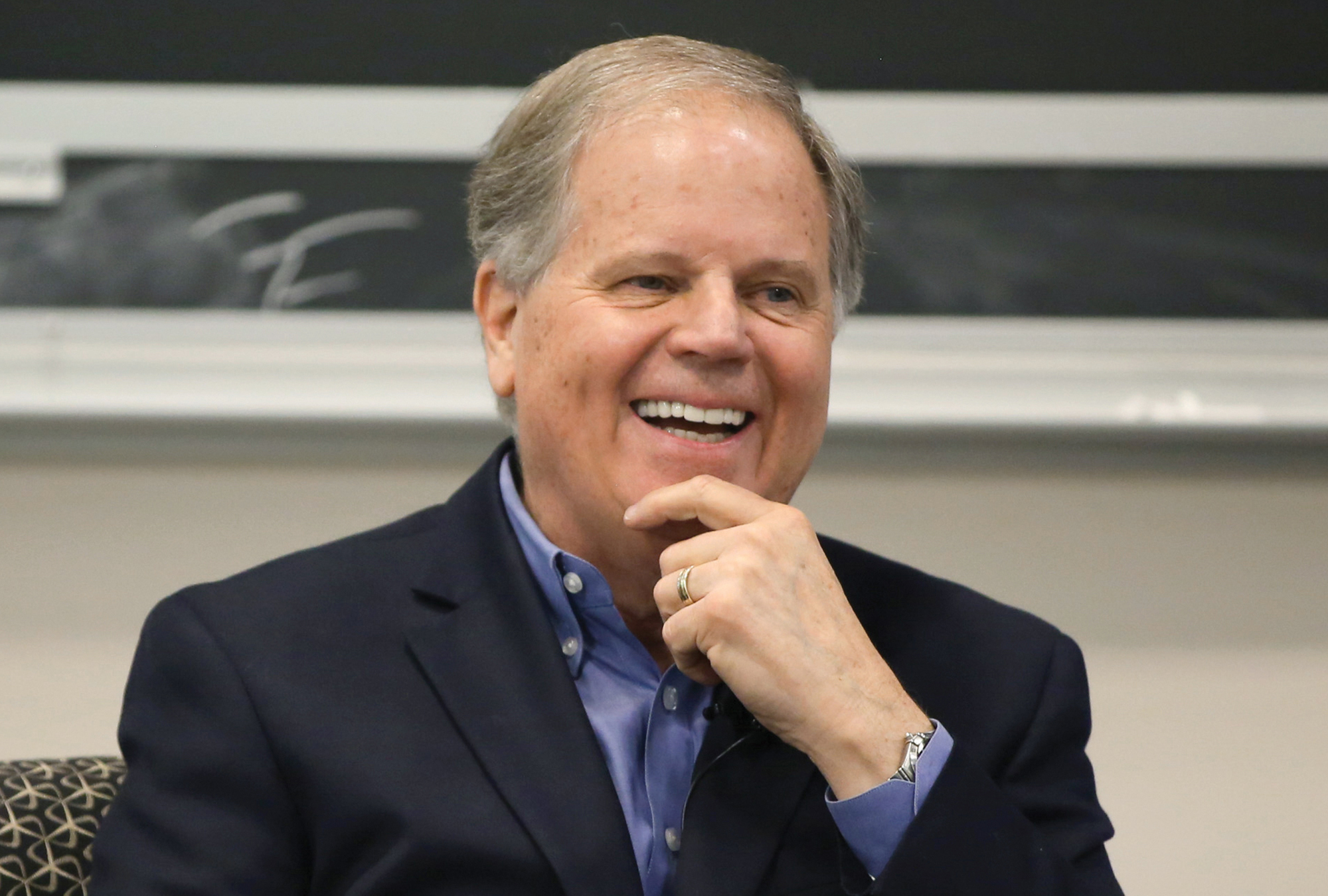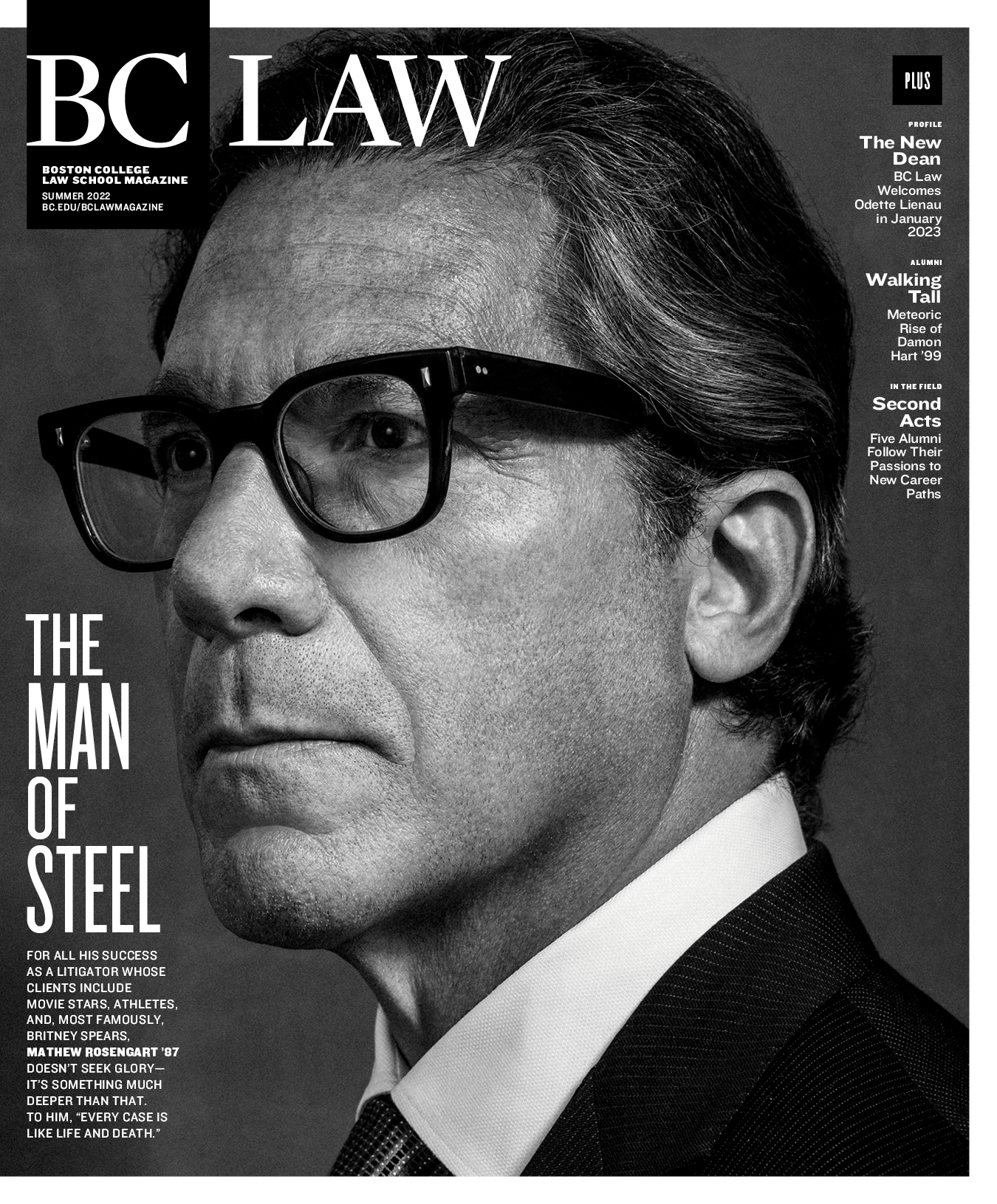Thanks to BC Law’s Rappaport Center for Law and Public Policy, current affairs were front and center last semester as some of the most urgent questions facing society today—rule of law, justice, climate—were debated by speakers from near and far, among them a visiting professor with an inside track to the naming of a new Supreme Court justice.
Former US Senator Doug Jones, the Jerome Lyle Rappaport Distinguished Visiting Professor, was tasked by President Biden with shepherding SCOTUS nominee Ketanji Brown Jackson through what turned out to be a contentious confirmation process in March. “What I didn’t fully appreciate until I met her was how inspirational this woman was going to be,” Jones told a gathering at BC Law. “She became an inspiration to so many people, not just young Black women, but inspiration to people across this country.”
Earlier in the semester, Jones had begun an address on democracy’s fragility with the words: “One if by land, two if by sea—three if within?” Such was his timely alteration to the historic signaling strategy used to alert colonial militias to the threat of advancing British troops. In discussing the state of democracy, Jones called for three lanterns to be lit in every city and every town in America, a signal that the nation’s biggest threats are the divisions among us. He explained that although we sit at the top of the ladder in terms of power and prestige, we need modern-day Paul Reveres to bring our country back together.
“As a prosecutor, I wanted to tell the story to my jury—a story that talks about the civil rights movement, a story that talks about these families and the children and the terror they went through.”
Rappaport visiting professor Doug Jones on the 16th Street Baptist Church bombing trial
In a mid-term lecture, Jones also reminded the BC Law community of the continuing threat to—and the value of fighting for—justice. A personal recollection provided a case in point. As a prosecutor in the early 2000s, Jones brought long-overdue justice to the victims of the 16th Street Baptist Church bombing that occurred in 1963 at the height of the civil rights movement. “As a prosecutor, I wanted to tell the story to my jury—a story that talks about the civil rights movement, a story that talks about these families and the children and the terror they went through,” said Jones. “At the same time, it is also a story of reconciliation and redemption; it is also a story of justice delayed, not justice denied.”



